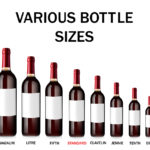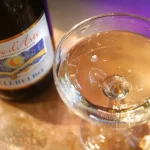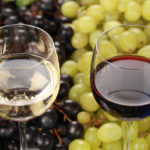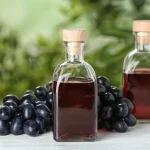For anyone who enjoys a couple of glasses of red wine after a stressful day at work, you may have wondered why it makes you feel sleepy afterwards.
Furthermore, you may also be curious as to whether there’s any truth in the belief that red wine makes you more drowsy and tired than any of its lighter relatives.
This guide will take a detailed look at the main reasons why drinking wine can make you sleepy. We’ll explain the differences between red and white wine, how to avoid feeling sleepy after drinking wine, and finally answer some of the frequently asked questions.
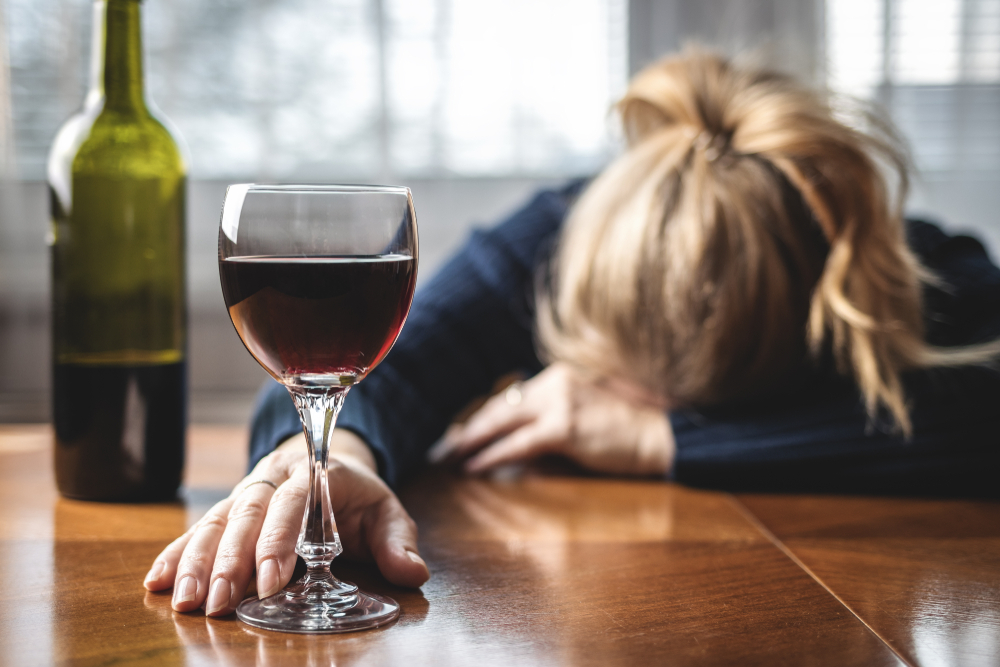
Red Wine Vs White Wine
While both wines can make you sleepy, there are a number of scientific differences that characterize their unique effects on the human brain and body.
White wines typically exhibit a lighter color and are notable for their lower alcohol by volume (ABV), prominent acidity, and reduced level of melatonin.
These distinctions may seem unconnected to one another, but they all stem from the unique fermentation of white wine – specifically the lack of contact and removal of grape skins during the wine-making process.
Unlike red grapes, white grapes tend to mature at a fast rate. This means that winemakers have to pick white grapes while they’re slightly less ripe, leading to lower alcohol levels and a lower sugar content in white wines.
In order to preserve these features, as well as ensure a lighter color and enhanced acidity, winemakers choose to separate white grapes from their skins during the process of fermentation.
So, while drinking white wine can definitely make you feel drowsy and a little sluggish, this is mainly due to the sedative effects of the alcohol.
On the other hand, red wines are well-known for their darker colors, higher ABV, and stronger melatonin presence.
The red grapes used to make red wines are picked later than white grapes so they’re much riper and provide a higher alcohol content.
This is because riper grapes contain higher levels of sugar, so during the fermentation process there’s considerably more sugar for yeasts to convert into alcohol.
Once red grapes are fermented by winemakers, they’re kept in close contact with their skins. These grape skins are high in tannins, which contribute to the silky texture of the wine and the strong melatonin presence.
So, the majority of red wines tend to make you significantly more sleepy than white wines because of the powerful sedative of a high ABV and the influence of melatonin. We’ll now look to explain the latter in a little more detail.
Melatonin
Grapes are the most common source of wine, and in their skins is a compound known as melatonin. Scientifically speaking, this is the same hormone released from the brain that helps to regulate circadian rhythms and sleep patterns.
This is why melatonin is often taken as a supplement by those who have difficulty sleeping.
The process of fermentation has a key role in the amount of melatonin produced. With red wine, the grape skins are left untouched during the wine-making process, whereas with white wine, the grape skins are removed prior or during fermentation.
Since melatonin is only found in the grape skins, this explains why red wine ends up with a dose of the sleep hormone and white wine doesn’t.
Furthermore, some reds tend to have more of an effect on sleepiness than others. This is because different types of grapes can provide varying levels of melatonin, so it all depends on your specific choice.
To further underline the connection between melatonin and sleep, it’s been observed that sleeping pills also contain melatonin. In fact, some medications may even contain as much as ten thousand times more melatonin than a standard serving of wine.
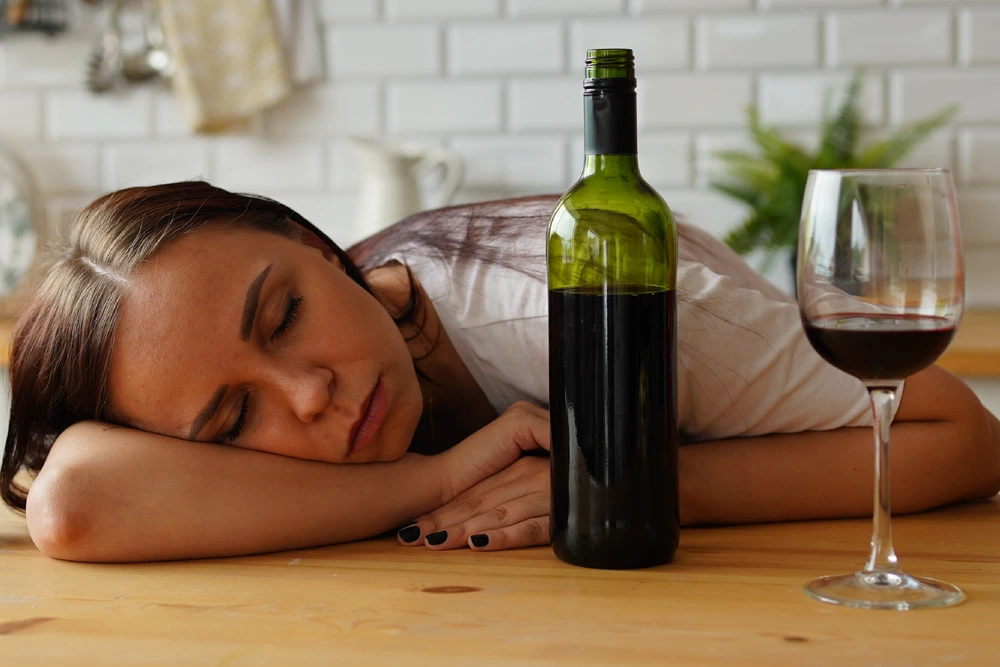
Alcoholic Content
Needless to say, the alcohol in wine itself is a major contributing factor to drowsiness. To put it simply, alcohol makes us tired by depressing the central nervous system (CNS) – a system which includes nerves in both the brain and spinal cord.
By sedating and relaxing the CNS, this can subsequently alleviate anxiety, improve emotional well-being, and most prominently, cause some tiredness.
These feelings, however, are only temporary, and soon wear off. In fact, research has shown that the enjoyable and sleep-inducing effects of drinking alcohol such as wine only last for as little as a few hours.
The Other Side Of The Coin
While drinking wine may be a more enjoyable alternative to a melatonin supplement in terms of getting to sleep, it does have its drawbacks.
For example, the quality of your sleep may be significantly reduced because of the alcoholic content of the drink.
Irrespective of whether you’re drinking wine, beer, or super strong liquor, major intoxication can unsettle sleep cycles, resulting in more periods of wakefulness and less time in a deep sleep.
In order to enjoy the sleep benefits of wine, it’s important to consume the alcoholic beverage in moderation. To do this, make sure you follow the pointers listed below.
- Drink a glass of water for every glass of wine you drink
- Pair your wine with some food to soak up the alcohol
- Limit yourself to just a couple of glasses
- Stop drinking around three hours before you intend going to sleep
Drinking Wine Without Falling Asleep
Pace Yourself
Consuming wine should be an enjoyable and relaxing experience – not a race to see who can get the drunkest first. No matter how quickly others drink, always enjoy your wine at a pace that suits you.
Line The Stomach
In order to slow down the absorption of alcohol, it’s a good idea to eat a healthy serving of food beforehand.
This prevents alcohol rushing straight to the small intestine (where it’s absorbed), allowing you to enjoy your wine without quickly becoming overwhelmed by its alcoholic effect.
Keep Hydrated
As mentioned previously, it’s important to keep your body hydrated while drinking alcohol. If you don’t drink enough water before, during, or after consuming wine, there’s every chance that you may become dehydrated and experience some negative effects.
Frequently Asked Questions
What Kind Of Wine Helps You Sleep?
There are certain red wines that contain substantially more melatonin than others. The wines with the highest levels of melatonin are made from red grapes such as Merlot, Nebbiolo, Cabernet Sauvignon, Croatia, and Cabernet Franc.
To provide context, Nebbiolo offers the highest melatonin levels of them all, while Cabernet Sauvignon contains up to 75 times more melatonin than Cabernet Franc.
Does wine make you gain weight?
Drinking an excessive amount of wine can cause you to consume considerably more calories than you’re able to burn, which in turn can lead to weight gain.
Furthermore, the calories taken in from consuming alcohol such as wine are considered “empty calories”. This is because the vast majority of alcoholic beverages don’t contain a significant amount of vitamins, minerals, or nutrients.
Is Four Glasses Of Wine A Night Too Much?
It’s generally considered that a good maximum amount of wine for a man is two 5 oz glasses, and for women one 5 oz glass, no more than three to four times a week.
It’s strongly advised not to consume more than four glasses of wine a day on a consistent basis if you want to enjoy the benefits of wine and still remain healthy.
Which Alcoholic Drink Is Best For Sleep?
While alcoholic beverages such as wine and beer provide a couple of benefits when it comes to sleep, the best type of alcoholic drink usually contains some form of liquor.
For example, the “Hot Toddy”, made with whisky, hot water, honey, and lemon, is renowned for its sleep-inducing effects as well as its curative properties.
Other alcoholic drinks that are ideal for feeling sleepy include port, sherry, and rum. If you’d prefer a non-alcoholic drink, chamomile and decaffeinated green tea are excellent options.
- Shrimp Cocktail (and More) Wine Pairing Guide - 09/06/2022
- What Wine Serving Sizes Look Like: Standard Size and More - 08/06/2022
- How Much Sugar is in Wine: Glass and Bottle Sugar Content - 08/06/2022

